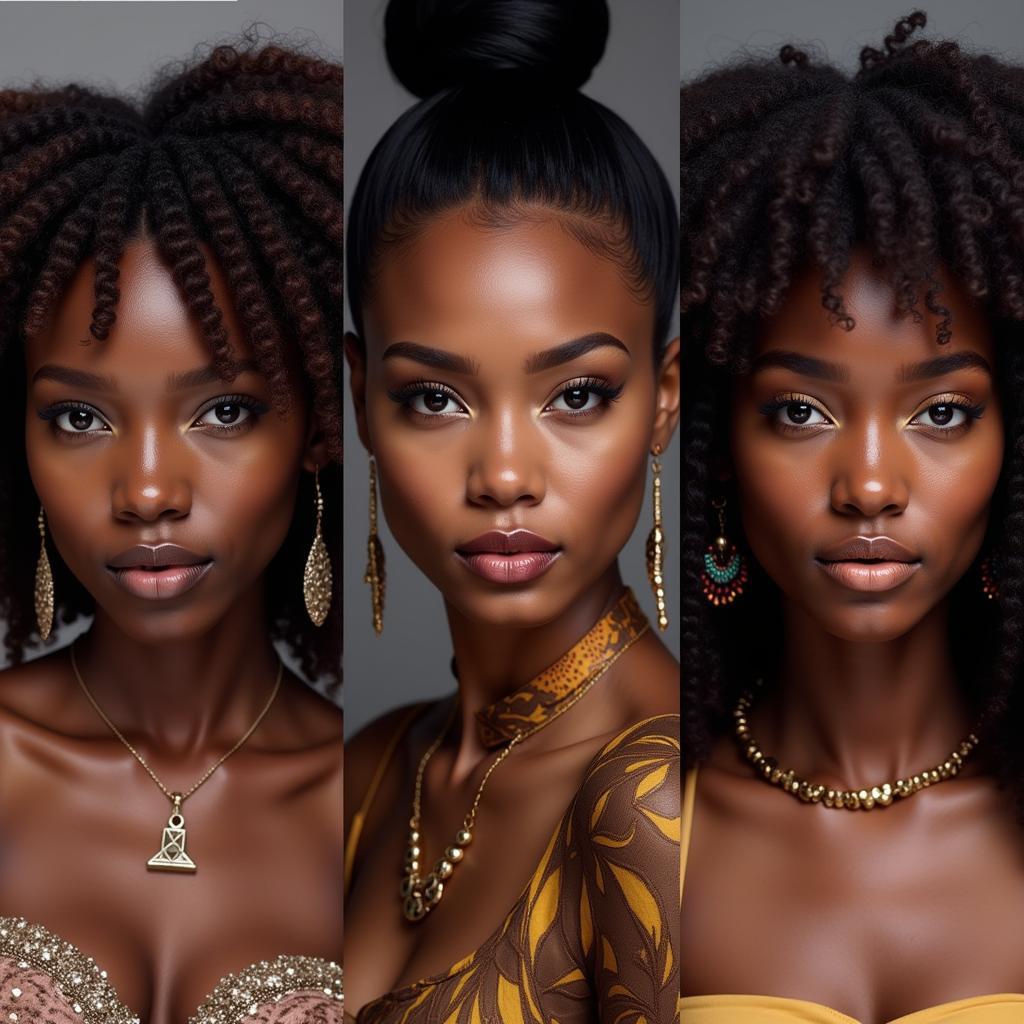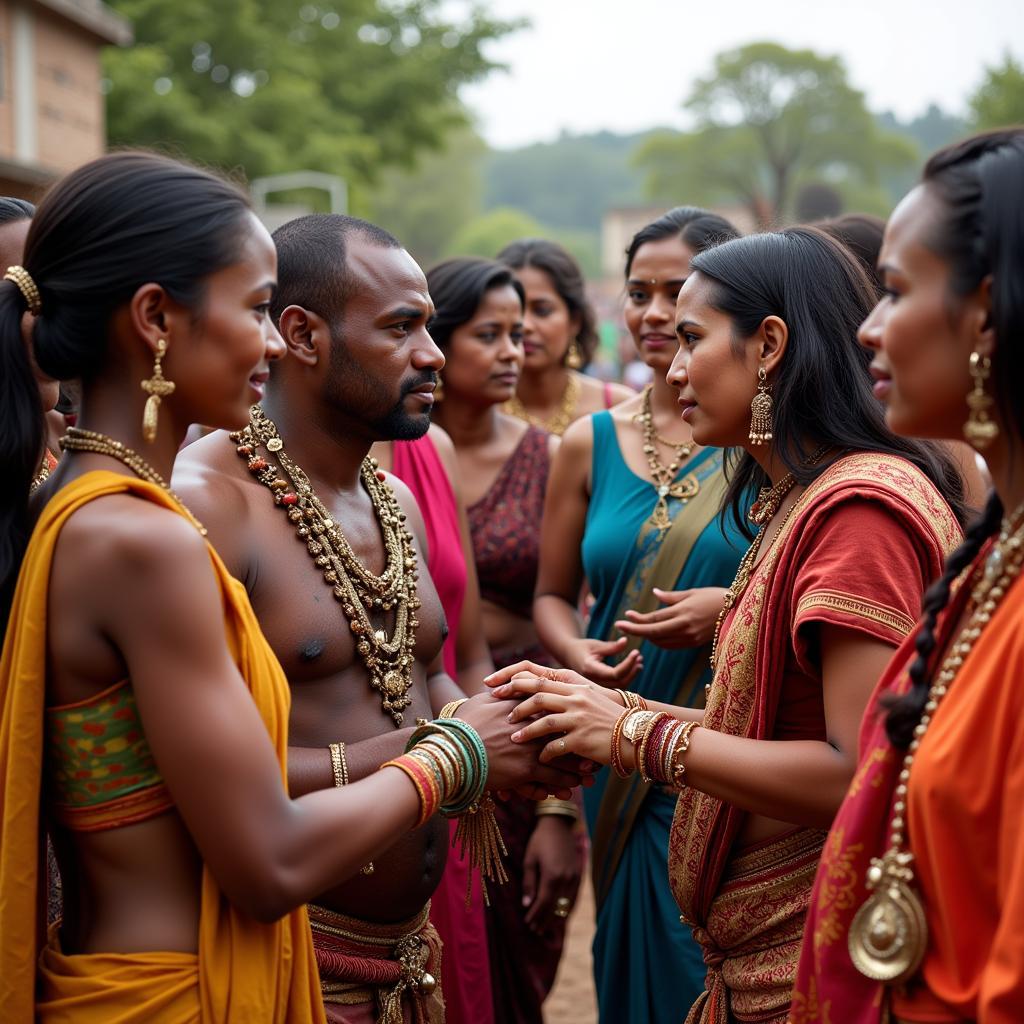Discovering the African Bassinet: A Cradle of Culture and Comfort
African Bassinets are more than just baby beds; they are a testament to the continent’s rich heritage, ingenuity, and deep connection to family. These traditional cradles, crafted with love and care, offer a unique blend of functionality and cultural significance, providing a safe and soothing haven for newborns while reflecting the diverse artistry of African communities.
The History and Significance of the African Bassinet
Across the diverse landscapes of Africa, bassinets take on various forms, reflecting the unique materials and traditions of each region. From woven baskets and intricately carved wooden cradles to suspended hammocks and elaborate beaded designs, each bassinet tells a story of cultural heritage passed down through generations. These cradles are often imbued with symbolic meaning, representing the continuity of life and the importance of family.
For centuries, African bassinets have played a crucial role in childcare. Their portable design allows mothers to keep their babies close while attending to daily tasks, fostering a strong bond and providing a sense of security for the infant. The gentle rocking motion of many traditional bassinets mimics the mother’s movements, further soothing the baby and promoting sleep.
Different Types of African Bassinets: A Journey Through Craftsmanship
From the rolling hills of East Africa to the arid landscapes of the Sahel, African bassinets showcase a stunning variety of designs and materials. In East Africa, you might find intricately woven bassinets made from sisal, reeds, or banana leaves, often adorned with cowrie shells or beads. West African bassinets often feature vibrant fabrics and elaborate embroidery, reflecting the region’s rich textile traditions. In some communities, wooden cradles are carved with intricate patterns, representing ancestral spirits and offering protection to the child.
Exploring the Materials and Techniques
The materials used in crafting African bassinets are as diverse as the continent itself. Natural resources like wood, bamboo, reeds, grasses, and clay are commonly employed, reflecting a deep respect for the environment. Traditional techniques like weaving, carving, and pottery are passed down through generations, ensuring the continuation of these ancient crafts.
“The creation of an African bassinet is a labor of love,” explains Adeola Olayinka, a renowned artisan from Nigeria. “It’s not just about making a bed for a baby; it’s about weaving in blessings, hopes, and dreams for the child’s future.”
The Modern Relevance of African Bassinets
While modern cribs and bassinets have become increasingly common, traditional African cradles continue to hold a special place in many families. They represent a connection to ancestral roots, a celebration of cultural heritage, and a tangible expression of love for a newborn. Moreover, the eco-friendly materials and sustainable practices involved in their creation resonate with a growing awareness of environmental responsibility.
Bringing Tradition into the 21st Century
Today, many artisans are blending traditional techniques with modern design elements, creating contemporary African bassinets that appeal to a global audience. These modern interpretations often incorporate features like adjustable stands, mosquito nets, and even organic cotton bedding, while still retaining the unique aesthetic and cultural significance of the traditional designs.
“We are seeing a resurgence of interest in traditional crafts,” notes Kofi Asante, a Ghanaian cultural historian. “People are looking for authentic, handcrafted items that tell a story and connect them to a deeper sense of history and culture.”
Conclusion: Embracing the Legacy of the African Bassinet
The African bassinet is more than just a place for a baby to sleep; it’s a symbol of heritage, craftsmanship, and the enduring power of tradition. From the intricate weavings to the symbolic carvings, each bassinet tells a story of love, family, and the rich cultural tapestry of Africa. By embracing these traditions and supporting the artisans who keep them alive, we can ensure that the legacy of the African bassinet continues to cradle generations to come.
FAQ
-
What are African bassinets made of? African bassinets are typically made from natural materials like wood, reeds, grasses, clay, and various fabrics.
-
Where can I buy an authentic African bassinet? You can find authentic African bassinets from reputable online retailers specializing in fair trade crafts, as well as from local artisans in African countries.
-
Are African bassinets safe for babies? When properly constructed and used, traditional African bassinets can be safe for babies. It’s essential to ensure the cradle is stable and that the materials used are non-toxic.
-
How do you clean an African bassinet? Cleaning methods vary depending on the materials used. Woven bassinets can often be gently wiped clean with a damp cloth, while wooden cradles can be dusted or polished.
-
What is the cultural significance of African bassinets? African bassinets represent the continuity of life, the importance of family, and a connection to ancestral roots. They often carry symbolic meanings specific to the culture they originate from.
Common Scenarios and Questions
-
Scenario: You’re looking for a unique and meaningful baby shower gift. Question: What are some good sources for handcrafted African bassinets?
-
Scenario: You’re interested in learning more about African culture. Question: How do bassinets reflect the different traditions and beliefs of various African communities?
-
Scenario: You’re concerned about the ethical sourcing of your baby products. Question: How can I ensure that the African bassinet I purchase is made with sustainable practices and fair labor standards?
Further Exploration
Explore our other articles on African art, culture, and traditions to deepen your understanding of this vibrant continent. You can also find information on ethical sourcing and fair trade practices on our website.
For assistance, please contact us at Phone Number: +255768904061, Email: kaka.mag@gmail.com, or visit our address: Mbarali DC Mawindi, Kangaga, Tanzania. We have a 24/7 customer service team.


